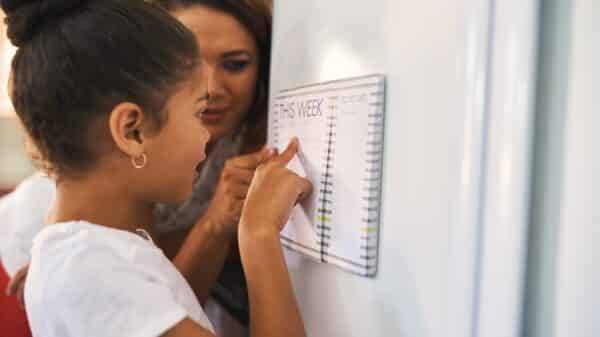Growing up, I often felt that back-to-school orientation was more about my parents than it was about me. Sure, feeling the excitement of fresh school supplies and brand-new outfits was enjoyable—who doesn’t love that? But for me, seeing my classroom, meeting my teacher, and checking out my cubby felt like minor details. The real orientation happened when I got to hang out with my friends.
That being said, I completely understand the value of those initial meetings and check-ins. They help ease the nerves that come with starting a new school year. Still, some educators have shared what they think would make a real difference in setting a positive tone for the start of the school year.
ProCare Therapy, a well-respected provider of school-based therapy and staffing since 1997, recently spoke with educators and school support staff about practical ways families can support their children’s success in the classroom. They gathered some insightful tips, especially important for those early weeks of school.
Making Rest and Emotional Regulation a Priority
“Getting your child ready for school isn’t just about filling their backpack with the latest gear,” emphasizes SarahLaine Magana, an education professional with nearly a decade of experience. “It’s crucial that kids come to school well-rested, fed, and emotionally balanced.”
Teachers appreciate when students arrive with a basic understanding of classroom expectations, like how to listen to others and smoothly navigate transitions. These foundational skills are essential for creating a positive learning environment.
Let Your Kids Do Their Own Homework
Teachers have a keen sense when a parent has done a little too much on their child’s homework. While it might be tempting to step in and help, resist that urge. When parents intervene too much, teachers often miss critical opportunities to identify learning gaps, and kids lose the chance to build their own confidence and problem-solving skills.
Establish Communication with Your Kids’ Teachers Early
Many teachers report that they seldom hear from parents unless issues arise. While life gets busy, it’s important to remember that a simple “hello, excited for this year!” email can go a long way in building trust. When problems do pop up, don’t hesitate to reach out. Sharing insights about your child’s learning style or any emotional shifts in the home can provide teachers with the context they need to give tailored support.
Read Every Night—Even with Older Kids
We all know how exhausting the day can be, but making reading a nightly habit can benefit your child immensely. Whether you read to them or encourage independent reading, this practice can enhance vocabulary, comprehension skills, and concentration. Even dedicating just 15 minutes a night can lead to noticeable improvement by the time fall conferences roll around.
Label Everything—Yes, Even the Jacket
If you thought labeling your child’s belongings was just a kindergarten thing, think again. Teachers constantly deal with missing identical water bottles, backpacks, and lunchboxes. Magana points out that a simple name label can save time and prevent unnecessary frustration.
Let Your Kid Handle Some Responsibilities
This isn’t about pushing children into adult roles too soon; it’s about fostering their independence. Whether it involves tasks like tying their own shoes or packing their lunches, giving kids some autonomy can free up valuable classroom time and boost their self-esteem.
Magana wraps it up perfectly: “The first month sets the tone for the year. We’re not expecting perfection, just a willingness to communicate, stay consistent, and remain engaged.” Each small step you take with your child can have lasting effects on their learning experience, all while building trust and understanding within your family. Every effort counts, especially as you start this exciting new chapter together.
Image Source: Unsplash



































